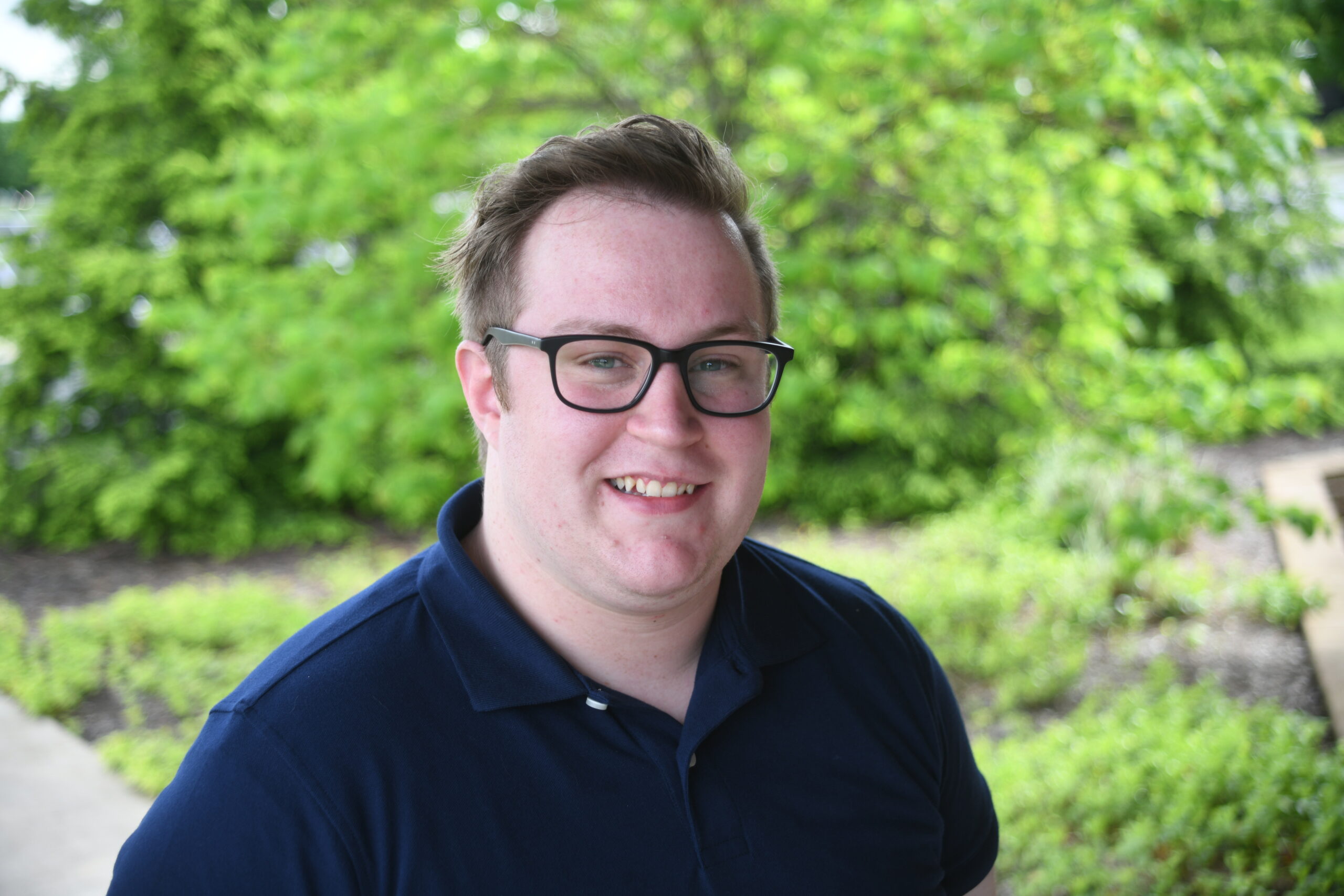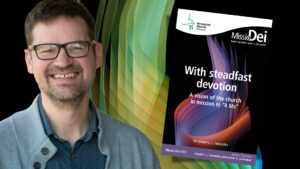The seminar crowd went silent as two people began to move toward the front of the room. Their eyes were shut tight against the white florescent lights, their arms outstretched as they blindly searched for a seat. People in the crowd spoke up with polite directions, and some guided the pair to empty seats. Only then did they open their eyes, the exercise concluded.
When asked how they felt during the exercise, the pair answered that they felt lost — that it was difficult to make their way alone. One of the pair Marisa Smucker, interim executive director of Mennonite Mission Network, said she felt much better once someone said her name and gently guided her to a seat.
"That was a demonstration of the theme," said Rebeca González in Spanish, translated into English by Linda Shelly, Mission Network’s regional director for Latin America*. González continued, "The experience of migration and disappeared people can be something that you just watch, or something that you experience."
Those two phenomena — migration and forced disappearance — were the subject of La Iglesia, migración y la desaparición forzada de personas (The Church, migration, and Disappeared People), a seminar given by González and Fernando Pérez, her husband and partner in ministry, on July 6 at MennoCon.
González and Pérez served as pastors for 35 years in neighborhoods at the edges of Mexico City. During that time, they thought they had learned everything there was to know caring for others and being stewards of the Christian faith. "We didn’t realize that we were just beginning to start a much more complex career," Pérez said.

Rebeca González and Fernando Pérez pray with their community in Cuautla, Morelos, Mexico, many of whom have been searching for their missing family members for years. Photo provided.
Since 2016, González and Pérez served through several ministries in a variety of locations. They lived in a small apartment in Aurora, Colorado, known as Casa de Paz (House of Peace), where Pérez said they tried to create a space of hope and hugs for people recently released from the nearby migrant detention facility.
They also served at Iglesia Menonita de Quito (Quito Mennonite Church) in Ecuador, where they were impressed by the small church’s capacity to help people migrating from Venezuela, Colombia, and the Middle East. The church had opened up its doors to receive people, and was providing food and other necessities, as well as listening to the spiritual needs of people who were migrating, and inviting them to be fully a part of the church.
Currently González and Pérez are serving in a transitional pastoral role in Newton, Kansas at Iglesia Menonita Casa Betania. The church was started by Spanish-speaking Mennonites who wanted to worship in their own language and reach out to the growing Hispanic community. Growth has come primarily with immigrants, and the church has come to realize that due to the nature of migration, people may move on.
"We have learned a great deal from those who do not have documents who are seeking migration," Pérez said.
When the COVID-19 pandemic started in 2020, González and Pérez moved back to Mexico. In Cuautla, Morelos, they were far from any of their previous ministries. "We asked ourselves, ‘Why is it the Lord has allowed us to be in so many places where people are migrating to, and now we’re in this town where nobody is passing through.’" González said.
They soon found out why, as they were invited to accompany families who were searching for their loved ones who had disappeared. This epidemic of what González and Pérez called "forced disappearance" is rampant in Mexico, and often targets the most vulnerable, like people who are migrating.
They followed this calling by ministering and prayer with the families of people who had disappeared, as well as physically accompanying them while they searched the desert. Pérez emphasized that they were looking for people. Not bodies or remains. Not numbers or statistics. People.
As they searched, they had a pair of phrases that they would call out.
¿Por qué las buscamos?
Why are we looking for them?
Porque los amamos.
Because we love them.
"Nobody can say that they are distant from migration and disappearance," González said. "These themes are always close to us as a church. How do we respond? We give our offerings, but this is not sufficient."
"It is important that the church break the ecclesial structures and go beyond the sharing of money," Pérez continued. "We need to go beyond the four walls of the church building [and serve people in need]."
*All subsequent quotes from González and Pérez were given in Spanish and translated into English by Shelly.







